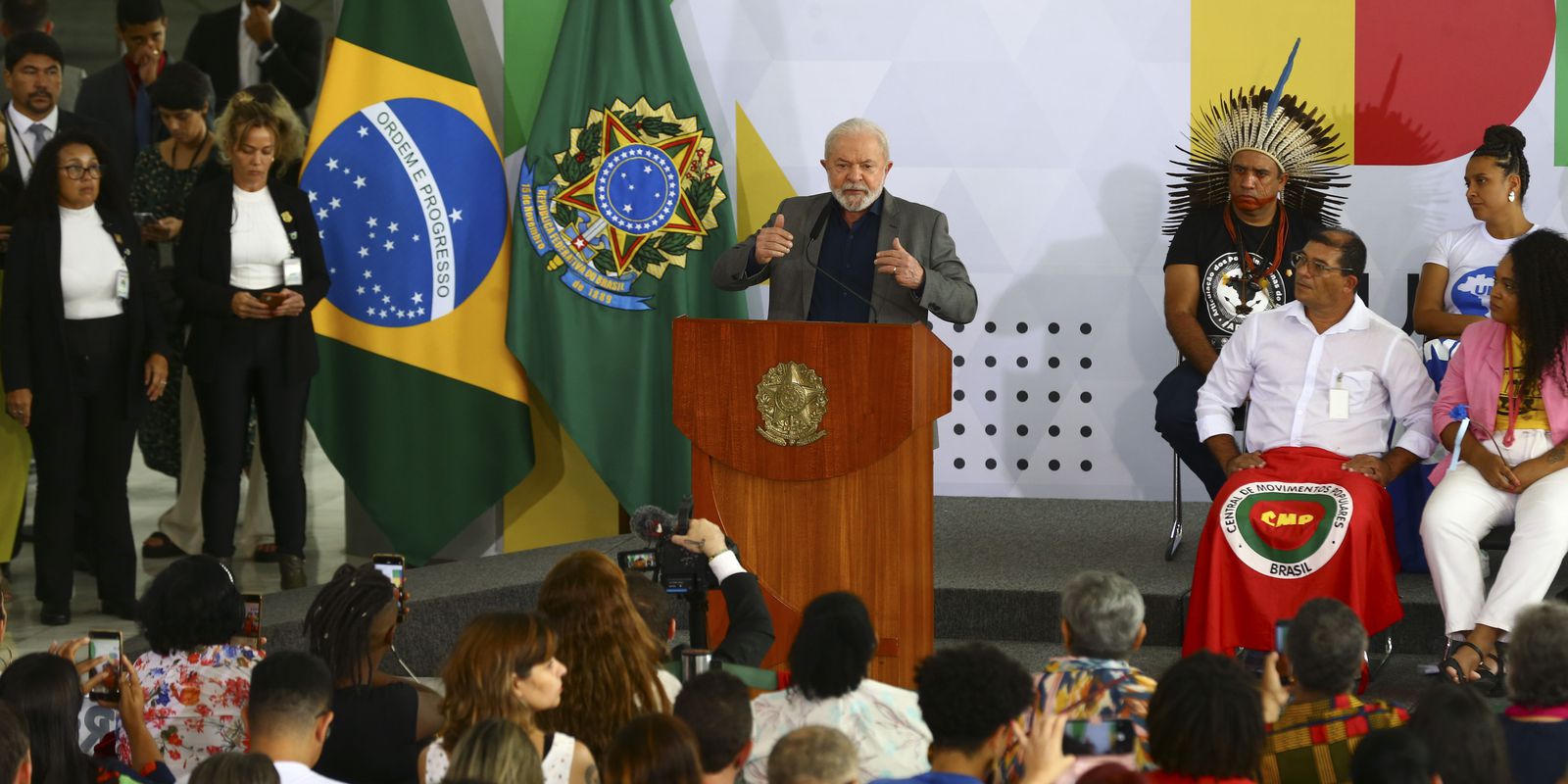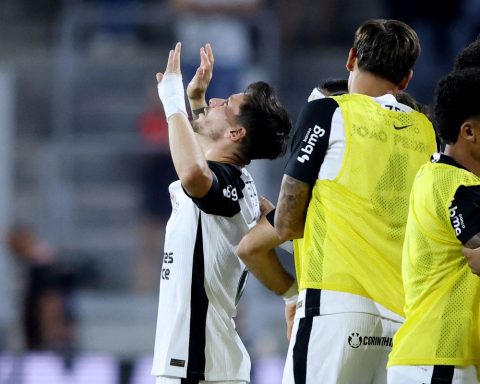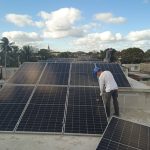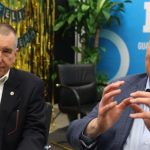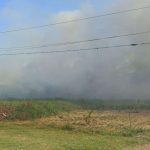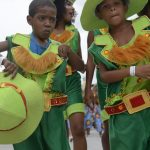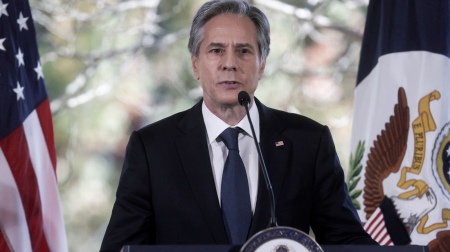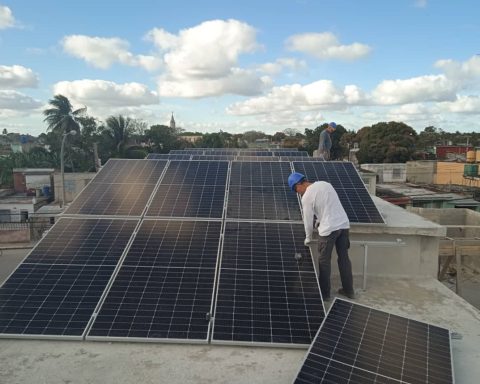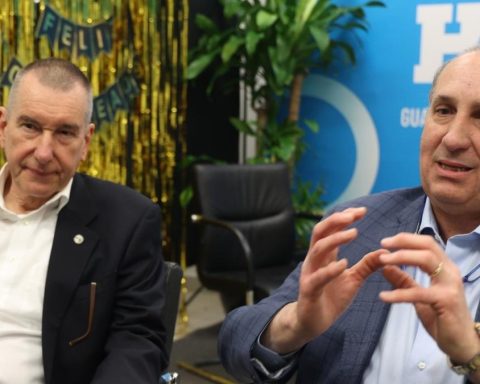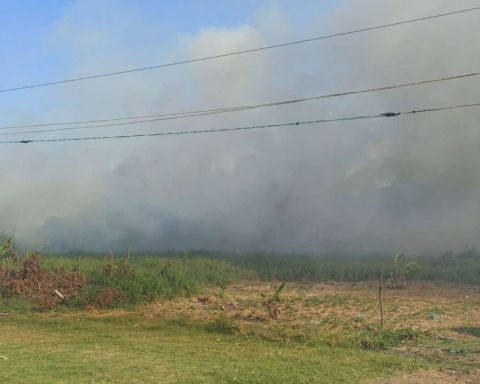President Luiz Inácio Lula da Silva said today (31st) that the Social Participation Council will be fundamental in rebuilding the country’s public policies. In an event at the Planalto Palace, he signed a decree creating the council and the Interministerial Social Participation System, reopening dialogue between the federal government and popular movements.
“I want you to know that you are participating and that this council will help us rebuild or build something new, effective popular participation and that you will be treated on an equal basis, that you can say yes in the same way as saying no. ”, said Lula.
The council will bring together representatives of 68 civil society movements and organizations and will meet every three months. It will be chaired by Lula and coordinated by the General Secretariat of the Presidency, under Minister Márcio Macêdo. The portfolio’s new functions are centered on coordinating dialogue with civil society entities, to ensure social participation in the formulation and execution of public policies.
The General Secretariat will also coordinate the Interministerial Social Participation System. Now, each ministry has a Social Participation and Diversity Office that will be responsible for the thematic demands and will be a reference for the General Secretariat to act transversally in the social participation policy.
In his speech, Minister Macêdo highlighted the dismantling of social participation in the last government, as an example, the extinction of the National Council for Food and Nutritional Security (Consea) created in 1993 and the emptying of the National Council for the Environment (Conama), created in 1981. The counterpoint, according to him, was the relevant role of the National Health Council in “defending life against denialism” during the covid-19 pandemic and the National Human Rights Council in “resisting an authoritarian government”.
“We need to discuss public policies for inclusion, income distribution and the reduction of inequality in the course of implementation. For this, we need to integrate popular education as an instrument for raising awareness and organizing social participation and multiplying popular councils around all public policies,” he said.
According to the minister, dialogue has already begun with the Ministry of Planning for the construction of a participatory budget, with the call for the Participatory Pluriannual Plan (PPA). The PPA is the planning instrument of government bodies.
In addition, the federal government’s digital social participation channels should be resumed, such as Participa PR, from the first Lula government, and Dialoga Brasil, from Dilma Rousseff’s government.
popular advice
A popular council was instituted during the transition of government and brought together, at the time, 57 movements, entities, forums and spaces for political and social articulation representing the entire country. The national coordinator of the Unified Black Movement and member of the executive coordination of the Transition Cabinet’s Social Participation Council, Simone Nascimento, hopes that the instruments created today will be an effective and constant dialogue space and a permanent listening channel.
“We hope to see yet other claims in the transition report come to fruition. We really want to carry out national joint efforts to face urgent social issues, such as hunger, vaccination, school dropout, the fight against the genocide of black people and femicide. The innovation of the existing process of social participation, communication, culture and popular education to improve mechanisms of direct, federative and territorial participation in the city and in the countryside. And an effectively participatory budget that puts the people among the priorities”, said Simone.
Also speaking at the event were the coordinator of the Central de Movimentos Populares and member of the Frente Brasil Popular, Raimundo Bonfim; the national coordinator of the Homeless Workers Movement and member of the People Without Fear Front, Vitória Genuino de Morais da Silva; the general secretary of the National Council of Christian Churches of Brazil and representative of the Brazilian Association of Non-Governmental Organizations, Romi Bencke; and a member of the Association of Judges for Democracy, the Brazilian Association of Jurists for Democracy and the coordination of the Coalition in Defense of Democracy, federal judge Cláudia Maria Dadico.
The president of the National Union of Students, Bruna Brelaz; the coordinator of the World March of Women, Ticiana Albuquerque; the president of the Central dos Trabalhadores e Trabalhadores do Brasil and representative of the Forum of Union Centrals, Adilson Araújo; the representative of rural popular movements, Ceres Hadich; the executive coordinator of the Articulação dos Povos Indígenas do Brasil, Dinamam Tuxá; the representative of the Food and Nutrition Security Policy Observatory and former president of the Food and Nutrition Security Council, Elisabetta Recine; the president of the National Human Rights Council, Leonardo Pinho; and Lucia Souto, member of the Brazilian Center for Health Studies and representative of Frente Pela Vida.
fiscal stability
In his speech, Lula also reaffirmed that he is a defender of fiscal stability, but that the people should not be left aside to the detriment of other economic commitments.
“The people voted because they expect us to take care of him, that we do something for him. I am a person who defends economic stability a lot, I want fiscal seriousness, but I want political seriousness, I want social seriousness, because it is true that we have many debts to pay.” The president added that the debt that has not been paid for five centuries it is the “social debt contracted with the Brazilian people”, he pointed out.
Lula also spoke about other topics, such as the crisis of the Yanomami people, the protection of the Amazon and the fight against violence against women. For him, a cultural change is needed, with education, and the creation of tougher laws to put an end to “this type of violence”.
